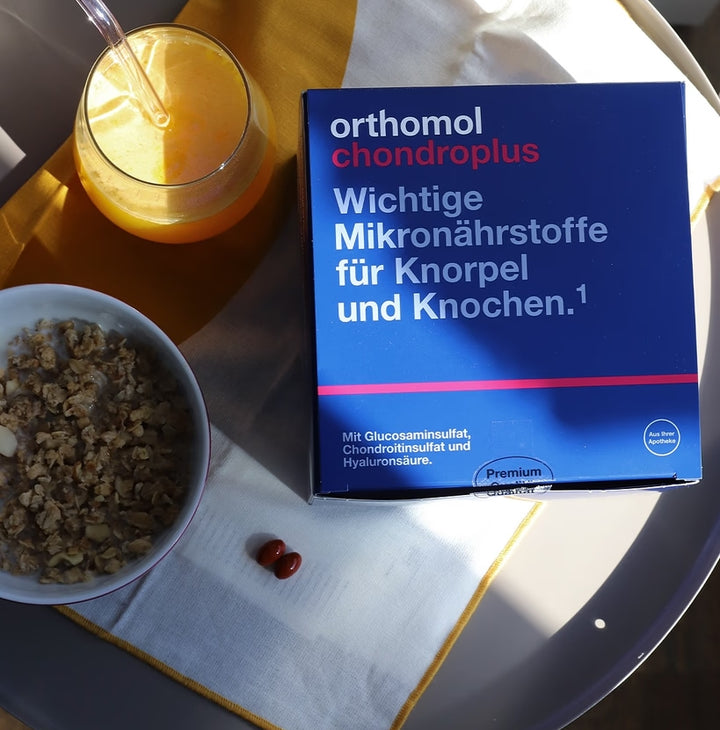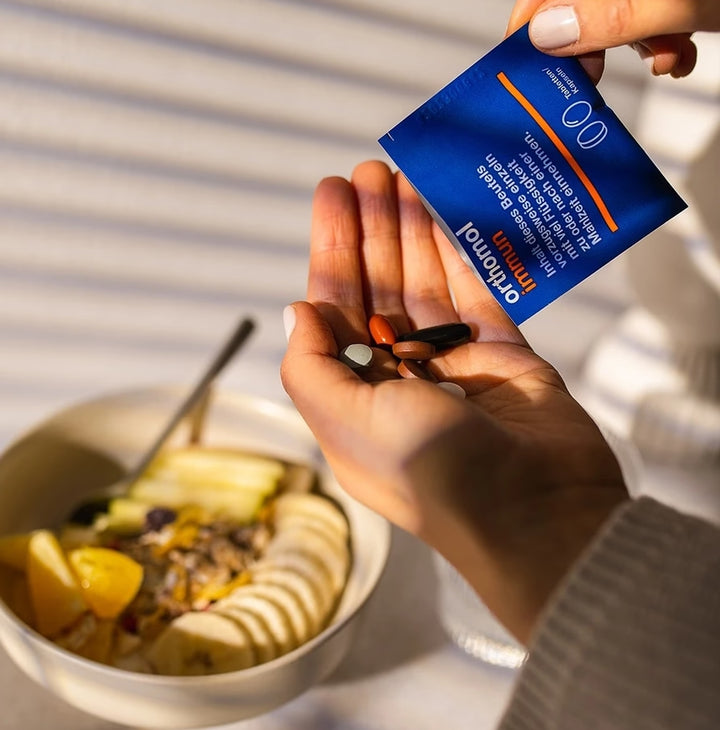
Healthy Habits: Love Your Heart - Essential Nutrients & Lifestyle Changes for Better Heart Health
A healthy heart is the foundation of overall well-being. Your cardiovascular system works tirelessly to supply oxygen and nutrients throughout your body, making it essential to support its function with the right nutrients and lifestyle choices. From key vitamins and minerals to daily habits that promote circulation and heart function, let’s explore how you can prioritize heart health and take proactive steps to protect your heart for years to come.

Essential Nutrients for Heart Health
Certain nutrients play a critical role in maintaining cardiovascular function, supporting blood circulation, and reducing the risk of heart disease. Here are some of the most important ones:
Coenzyme Q10 (CoQ10)
- Acts as a powerful antioxidant that supports energy production in heart cells.
- Helps reduce oxidative stress and inflammation linked to heart disease.
- Can aid in maintaining healthy blood pressure levels.
Best Sources: Fatty fish, beef, peanuts, and heart-healthy supplements. CoQ10 levels naturally decrease with age, making supplementation beneficial for older adults.
Omega-3 Fatty Acids
- Reduce inflammation, a key contributor to heart disease.
- Help lower triglyceride levels and improve cholesterol balance.
- Support heart rhythm stability and healthy blood pressure.
Best Sources: Salmon, mackerel, flaxseeds, walnuts, and Vital F and Vital M Liquid Supplements, which contain omega-3s tailored to U.S. dietary needs. Omega-3s are also linked to reduced risk of stroke and improved overall vascular function.
Magnesium
- Helps regulate blood pressure by relaxing blood vessels.
- Supports muscle function, including the heart muscle.
- Plays a role in reducing arrhythmias (irregular heartbeats).
Best Sources: Dark leafy greens, nuts, seeds, whole grains, and avocados. Magnesium deficiency has been linked to increased risk of high blood pressure and cardiovascular issues.
B Vitamins (B6, B12, Folate)
- Help reduce homocysteine levels, a risk factor for cardiovascular disease.
- Support red blood cell formation and circulation.
- Contribute to energy production and overall heart function.
Best Sources: Whole grains, eggs, dairy, meat, and fortified cereals. These vitamins work together to keep blood vessels healthy and reduce the risk of heart attacks.
Lifestyle Changes for a Stronger Heart
Beyond nutrition, lifestyle habits play a major role in keeping your heart in optimal condition. Here are key changes to consider:
1. Prioritize a Heart-Healthy Diet
A diet rich in whole foods, fiber, and lean proteins is essential for heart health. Focus on:
- More: Fruits, vegetables, whole grains, and lean proteins.
- Less: Processed foods, trans fats, and excess sodium.
- Healthy fats: Incorporate olive oil, nuts, and fatty fish for heart-boosting omega-3s.
Visual Suggestion: A colorful infographic displaying heart-friendly foods and their benefits.
2. Exercise Regularly
Physical activity strengthens the heart and improves circulation. Try:
- Cardio workouts: Walking, jogging, cycling, or swimming for at least 150 minutes per week.
- Strength training: Supports overall cardiovascular function and metabolism.
- Stretching & yoga: Helps with stress reduction and circulation.
Visual Suggestion: A simple weekly exercise plan graphic.
3. Manage Stress Effectively
Chronic stress can increase blood pressure and contribute to heart disease. To combat stress:
- Practice mindfulness or meditation.
- Engage in hobbies or activities that bring joy.
- Ensure you get enough quality sleep.
Prolonged stress triggers the release of cortisol, which can lead to hypertension and arterial damage. Finding ways to relax is essential for heart health.
4. Monitor Blood Pressure & Cholesterol
- Keep track of your blood pressure with regular check-ups.
- Eat a heart-friendly diet to maintain optimal cholesterol levels.
- Consider heart-healthy supplements if dietary intake is insufficient.
Easy Daily Habits to Improve Circulation & Lower Blood Pressure
- Stay Hydrated: Drinking enough water supports blood viscosity and circulation.
- Limit Caffeine & Alcohol: These can contribute to dehydration and increased heart rate.
- Get Enough Sleep: Aim for 7-9 hours of quality sleep for overall heart health.
- Take Short Walks: Moving frequently throughout the day supports circulation.
- Quit Smoking: Tobacco use is a leading cause of heart disease, and quitting can dramatically improve cardiovascular health.
- Laugh More: Laughter reduces stress and increases blood flow, improving vascular function.
Incorporating Heart-Healthy Supplements Into Your Routine
While a balanced diet is key, supplements can help fill nutritional gaps and ensure optimal heart support.
- Vital F and Vital M Liquid Supplements provide essential micronutrients, including omega-3s and B vitamins, designed to meet the unique nutritional needs of the U.S. population.
- Look for high-quality CoQ10 and magnesium supplements if your diet lacks these nutrients.
- Garlic supplements have been shown to help lower blood pressure and cholesterol levels.
- Plant sterols and fiber supplements can aid in reducing LDL cholesterol.
- Consult with a healthcare provider before starting new supplements.
Visual Suggestion: A daily supplement checklist for heart health, including food sources and recommended dosages.
Understanding the Importance of Heart Health Across Different Life Stages
Your heart’s needs evolve as you age. Here’s how to focus on heart health at different life stages:
In Your 20s and 30s:
- Establish heart-healthy habits early.
- Exercise regularly and avoid excessive processed foods.
- Maintain a balanced omega-6 to omega-3 ratio.
In Your 40s and 50s:
- Monitor blood pressure and cholesterol levels.
- Manage stress levels and incorporate relaxation techniques.
- Increase magnesium and CoQ10 intake as natural levels decline.
In Your 60s and Beyond:
- Keep active with low-impact exercises like walking and swimming.
- Maintain a nutrient-dense diet with ample fiber and lean proteins.
- Ensure adequate intake of heart-protecting vitamins and supplements.
Final Thoughts: Take Small Steps for Lifelong Heart Health
Heart health is a lifelong commitment, but small, consistent actions can have a significant impact. By focusing on nutrient-rich foods, regular exercise, stress management, and high-quality supplements, you can support a strong and resilient cardiovascular system. Start today by incorporating one heart-healthy habit at a time—your heart will thank you!




